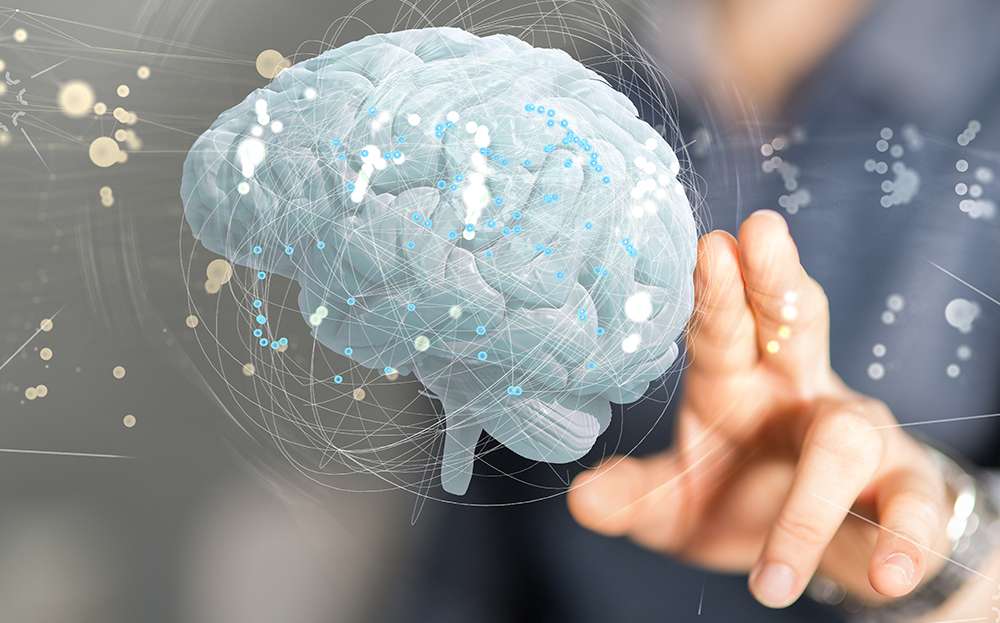You ever reach for your keys, only to realize they're in your hand? Or walk into a room completely forgetting why you were there? We've all been there. These frustrating memory lapses are a common experience in midlife, and let's face it, they can be a bit discouraging.
But here's the good news. Our brains are like muscles – they respond to exercise! Just because cognitive decline might feel inevitable, doesn't mean it has to be. In fact, there are specific strategies we can use to keep our minds sharp and our memories firing on all cylinders.
Today, we're diving deep into the world of brain health in midlife. We'll explore why our cognitive function might start to decline as we age, and more importantly, how we can use targeted cognitive exercises to boost our memory and overall sharpness.
By the end of this post, you'll be armed with five powerful cognitive exercises you can easily integrate into your routine. We'll cover everything from building memory palaces to mastering a new language, all designed to challenge your brain and unlock its full potential. So, grab your favorite thinking cap, because it's time to give your brain a workout!
Why Does Our Brain Health Decline in Midlife?
As much as we might wish it stayed perpetually youthful, our brain, like the rest of our body, undergoes changes as we age. These changes can lead to a decline in cognitive function, which manifests as forgetfulness, difficulty concentrating, and slower processing speeds.
Here's a closer look at some of the key factors at play:
· The Aging Process: Over time, blood flow to the brain naturally decreases. This reduced blood flow can impact the delivery of oxygen and nutrients essential for optimal brain function. Additionally, the production of neurotransmitters, the brain's chemical messengers, can slow down, affecting communication between brain cells.
· Midlife Challenges: Midlife throws some unique curveballs at our brains. Increased stress levels, often due to work pressures or family responsibilities, can negatively impact memory and focus. Sleep deprivation, another common midlife woe, disrupts the brain's consolidation process, making it harder to form new memories and retain information. Hormonal fluctuations, particularly in women going through perimenopause or menopause, can also contribute to cognitive changes.
But here's the silver lining. Our brains are remarkably adaptable.
· Neuroplasticity in Action: Neuroplasticity refers to the brain's ability to form new connections and pathways throughout life. Think of it like building new roads in a city. Even though some old routes might become less efficient, we can create new connections to navigate and keep information flowing smoothly.
The key takeaway? While age-related decline might be a natural part of life, it doesn't have to be the final word. By adopting proactive strategies that stimulate neuroplasticity, we can significantly improve our brain health and cognitive function in midlife and beyond.
The Power of Cognitive Exercises
You might be wondering, "What exactly are these proactive strategies you mentioned?" Enter the world of cognitive exercises!
These aren't your average brain games you see advertised online. Cognitive exercises are targeted activities specifically designed to challenge your brain and stimulate neuroplasticity. Here's why they're such a powerful tool for boosting brain health:
· Brain Training vs. Brain Games: There's a difference between brain training and casual brain games. While brain games might be entertaining, they often focus on repetitive tasks that don't offer much long-term benefit. Cognitive exercises, on the other hand, push your brain outside its comfort zone, forcing it to create new connections and adapt. Think of it like the difference between spending hours watching TV and going for a challenging hike – both might pass the time, but only one will leave you feeling stronger.
· Neuroplasticity in Action (Again!): Remember the analogy of building new roads in the brain? Cognitive exercises act like a construction crew, constantly laying down new neural pathways. As you engage in these exercises regularly, your brain becomes more efficient at processing information, strengthening your memory, focus, and overall cognitive function.
· Benefits Beyond Memory: The advantages of cognitive exercises go beyond just remembering your grocery list. Studies have shown they can improve your problem-solving skills, enhance critical thinking, and even boost creativity. Think of your brain as a well-oiled machine – the more you train it, the better it performs in all aspects of your life.
· Building a Brain Training Routine: The key to reaping the benefits of cognitive exercises is consistency. Aim to incorporate these activities into your daily or weekly routine, just like you would any other exercise program. The good news? There are a wide variety of exercises to choose from, so you can find ones you actually enjoy. Think of it as a fun mental workout that keeps your brain sharp!
5 Effective Cognitive Exercises for Midlife Brainpower
Now that you're armed with the knowledge of how powerful cognitive exercises can be, let's explore some specific activities you can incorporate into your routine. Here are 5 effective exercises designed to challenge your brain and boost your cognitive function in midlife:
1. Dual N-Back Training: This exercise might sound intimidating, but it's a fantastic way to challenge your working memory and attention. Imagine a series of letters and sounds presented one after another. In dual n-back training, you need to remember if the current letter (visually presented) and sound match what appeared "n" items back in the sequence. As the "n" increases, the difficulty ramps up, forcing your brain to work hard and create new connections. There are many free online resources available to try dual n-back training.
2. Memory Palaces: Feeling like your grocery list exits your mind the moment you step out the door? Enter the world of memory palaces! This ancient technique uses visualization and spatial memory to encode information. Imagine placing each item on your list in a familiar location, like your living room. When you need to recall the list, mentally walk through your memory palace, "collecting" the items you placed there. It's a fun and effective way to improve your recall and overall memory function.
3. Learning a New Language: Ever thought about brushing up on your high school French or finally conquering Spanish? Learning a new language is a fantastic cognitive workout. It challenges your brain to process new grammar rules, vocabulary, and even cultural nuances. Plus, studies show that multilingualism can improve cognitive flexibility and even delay the onset of age-related cognitive decline. There are tons of language learning apps and online courses available to get you started, regardless of your age or experience level.
4. Strategic Board Games: Dust off that chessboard or explore the world of Go! Strategic board games require careful planning, critical thinking, and the ability to anticipate your opponent's moves. This mental gymnastics keeps your brain sharp and strengthens your ability to think several steps ahead. Online platforms connect you with players worldwide, making it easy to find a worthy opponent and challenge yourself intellectually.
5. Mindfulness Meditation: Meditation might seem like the opposite of a brain workout, but mindfulness meditation offers surprising cognitive benefits. By focusing your attention on the present moment and letting go of distractions, you train your brain to improve focus and reduce stress. Studies have shown that regular meditation practice can enhance memory, improve emotional regulation, and even boost overall cognitive function. There are many beginner-friendly meditation apps and online resources available to guide you through the practice.
Lifestyle Hacks for Optimal Brain Health
While cognitive exercises are a powerful tool for boosting brain health, they're just one piece of the puzzle. For optimal cognitive function throughout your life, it's crucial to adopt a healthy lifestyle that supports your brain's needs. Here are 2 key lifestyle hacks to prioritize:
· Fuel Your Brain with a Healthy Diet: Your brain is a complex organ that craves specific nutrients to function at its best. Choose a diet rich in fruits, vegetables, whole grains, and lean protein. These foods provide essential vitamins, minerals, and healthy fats that nourish your brain cells and support cognitive function. Limit processed foods, saturated fats, and added sugars, as these can have a negative impact on brain health.
· Move Your Body, Boost Your Brain: Regular physical exercise isn't just good for your physical health – it's a fantastic way to keep your brain sharp too! Exercise increases blood flow to the brain, delivering vital oxygen and nutrients. It also stimulates the production of neurotrophic factors, which promote the growth and survival of brain cells. Aim for at least 30 minutes of moderate-intensity exercise most days of the week. From brisk walking and swimming to dancing or cycling, choose activities you enjoy and make exercise a regular part of your routine.
Conclusion
Remember that walk into a room and forget why you were there moment? Well, consider that a thing of the past! By incorporating cognitive exercises and healthy lifestyle habits into your routine, you can take charge of your brain health and keep your mind sharp and vibrant for years to come.
The key takeaway? Your brain is incredibly adaptable, and you have the power to influence its health and function. Think of these cognitive exercises as a fun and rewarding way to invest in your brain's future. So, what are you waiting for? Grab your metaphorical thinking cap, challenge yourself with some brain training, and embark on a journey of lifelong cognitive well-being!







